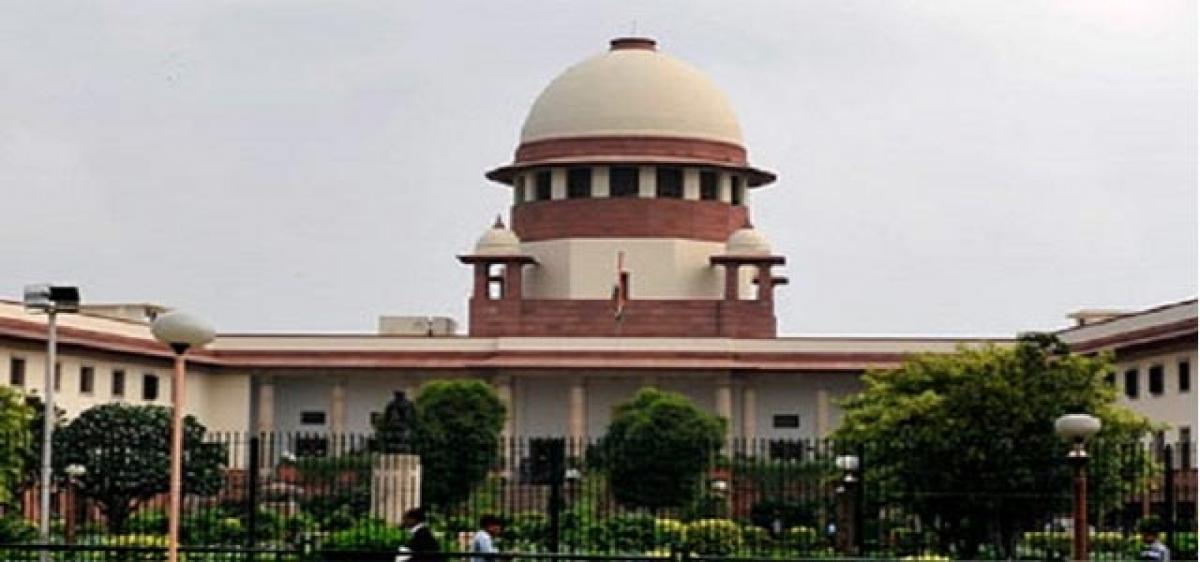Live
- Khichi elected mayor of Delhi
- Sports enthusiasts encouraged to focus on achieving their goals
- SC agrees to hear plea related to Delhi pollution
- Srikakulam: Cooperative Week celebrations take off
- National Library Week celebrations begin
- Bringing joy to MPP schoolchildren
- Contaminated food worth Rs 52,000 disposed
- BJP MLA warns of protest over Panchamasali reservation demand
- Sunspots and solar flares can affect Earth’s surface
- Discom staff neglect jungle clearance at poles
Just In

The Supreme Court on January 2 ruled that politicians cannot seek votes on the grounds of caste, creed or religion.
The Supreme Court on January 2 ruled that politicians cannot seek votes on the grounds of caste, creed or religion. The judgment came after the court revisited earlier judgments, including the one in 1995 that equated Hindutva with Hinduism and called it a “way of life.” “It is a fallacy and an error of law to proceed on the assumption that any reference to Hindutva or Hinduism in a speech makes it automatically a speech based on Hindu religion as opposed to other religions … (Hindutva and Hinduism) are used in a speech to emphasise the way of life of the Indian people and the Indian cultural ethos,” the 1995 judgment authored by Justice J S Verma had said.
The Court verdict on Monday essentially dealt with the question whether a religious leader's appeal to his followers to vote for a particular political party would amount to electoral malpractice under Section 123 of the Representation of People Act. The Section 123 (3A) says: “The promotion of, or attempt to promote, feelings of enmity or hatred between different classes of the citizens of India on grounds of religion, race, caste, community, or language, by a candidate or his agent or any other person with the consent of a candidate or his election agent for the furtherance of the prospects of the election of that candidate or for prejudicially affecting the election of any candidate.] 8[(3B) The propagation of the practice or the commission of sati or its glorification by a candidate or his agent or any other person with the consent of the candidate or his election agent for the furtherance of the prospects of the election of that candidate or for prejudicially affecting the election of any candidate. Explanation.
For the purposes of this clause, “sati” and “glorification” in relation to sati shall have the meanings respectively assigned to them in the Commission of Sati (Prevention) Act, 1987 (3 of 1988).]” The Section 122 (b) of the Act also considers as bribery “The appeal by a candidate or his agent or by any other person with the consent of a candidates or his election agent to vote or refrain from voting for any person on the ground of his religion, race, caste, community or language or the use of, or appeal to religious symbols...”

© 2024 Hyderabad Media House Limited/The Hans India. All rights reserved. Powered by hocalwire.com







